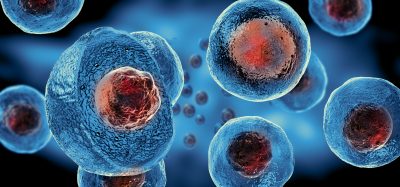SERS-artificial intelligence method for early detection of cancer
Posted: 16 August 2023 | Taylor Mixides (Drug Target Review) | No comments yet
Scientists have developed a promising new method to detect cancer at very early stages during routine health screens, paving way for improved treatment and recovery.


Cancer remains a major global health concern, often diagnosed at advanced stages when treatment options and survival rates are limited. Early detection and intervention are likely to be the most effective means of reducing morbidity and mortality of human cancer.1 Early-stage cancers are typically asymptomatic, making routine screening challenging with traditional methods due to cost and clinical constraints.
While various surface-enhanced Raman scattering (SERS)-based cancer detection techniques boast high sensitivity and selectivity, they tend to focus on specific biomarkers and limited cancer types, often hindered by small sample sizes and inefficient analysis. However, a study published in eLight, led by Professor Xiangheng Xiao from Wuhan University, presents a game-changing approach that merges SERS with artificial intelligence (AI) for cancer screening (SERS-AICS). This novel technology utilises big data analytics to detect subtle molecular changes in patient serum samples, offering promising results for early-stage cancer detection and patient monitoring.
SERS-AICS: a powerful fusion of technologies
The SERS-AICS method combines the strengths of traditional SERS systems, which enhance Raman signals for precise molecular detection, with advanced big data tools for comprehensive analysis. Utilising just 15ul of patient serum samples, the researchers tested it with silver nanowires for various cancer types, capturing molecular vibrational changes indicative of altered physiology and pathology in cancer samples. They then trained and validated the predictive workflow using data from 382 healthy individuals and 1,582 cancer patients. The SERS-AICS system exhibited impressive efficacy, achieving an overall accuracy of 95.81 percent, sensitivity of 95.40 percent, and specificity of 95.87 percent across five cancer types. Furthermore, it successfully distinguished early-stage cancer samples from those with common diseases, laying the foundation for a robust data platform for further in-depth analysis.
A panoramic view of cancer biomarkers
One of the key advantages of the SERS-AICS method lies in its ability to provide a comprehensive and panoramic view of alternative signals in cancers, rather than focusing on just a few specific biomarkers. This approach offers the potential to detect subtle changes in molecular fingerprinting information that exist between healthy and disease states, making it a promising tool for early-stage cancer screening.
Promising applications in clinical practice
Professor Xiao expressed excitement about the potential of the SERS-AICS method to transform cancer detection. The ability to identify individuals who are potentially harbouring cancer through routine blood samples obtained during health exams opens up new avenues for early intervention. Suspicious findings can prompt further evaluation and definitive diagnosis, enabling timely treatment and improved patient outcomes.
Future directions and prospects
Moving forward, the researchers plan to analyse the molecular vibrational spectrum associated with various clinical characteristics of cancer. This in-depth understanding of the disease could aid in selecting targeted therapies for individual patients, further enhancing treatment outcomes. Moreover, the team aims to expand the application of the SERS-AICS method to detect a broader range of cancers and other diseases, promising significant advancements in early-stage cancer detection and patient monitoring.
The SERS-AICS method represents an advancement in cancer screening, offering a transformative approach to early detection and patient monitoring. By ingeniously combining SERS technology with artificial intelligence, this innovative approach presents a panoramic view of cancer biomarkers, providing higher accuracy and sensitivity for detecting cancer at early stages. With potential applications in routine health exams and targeted therapies, SERS-AICS holds great promise for revolutionising cancer care and significantly improving patient outcomes in the future.
References
- Jillian Phallen. Direct detection of early-stage cancers using circulating tumor DNA. Transl. Med.9, 2017.DOI:10.1126/scitranslmed.aan2415
Related topics
Artificial Intelligence, Biomarkers, Immuno-oncology, Targets
Related conditions
Cancer
Related organisations
Wuhan University
Related people
Professor Xiangheng Xiao








